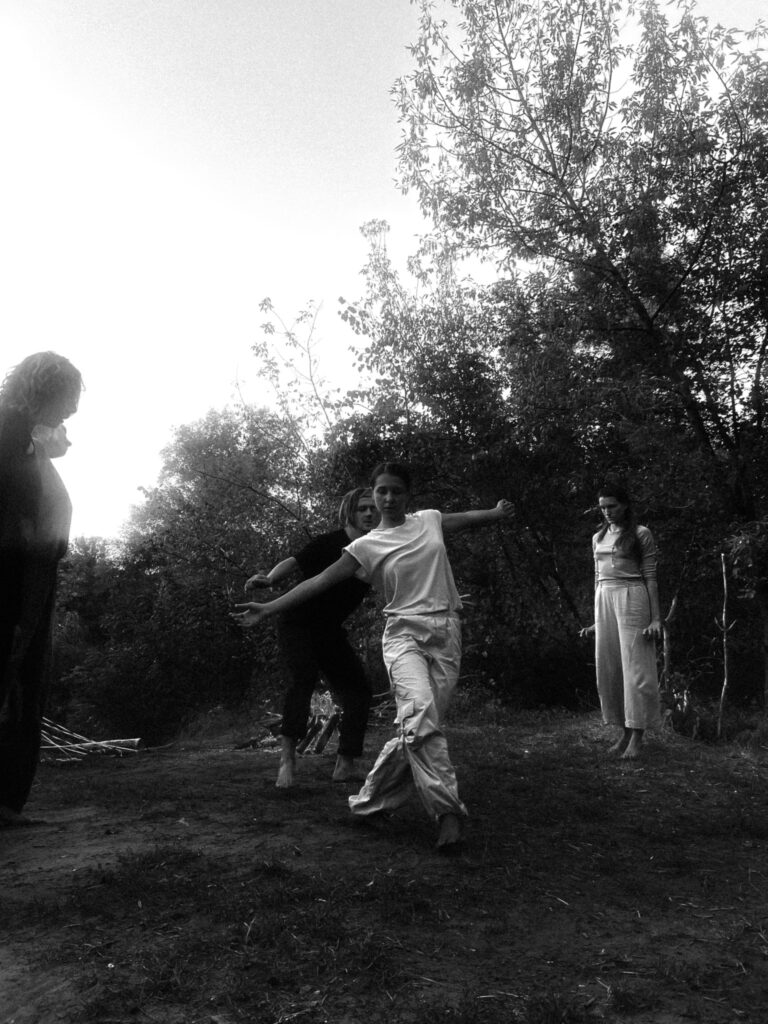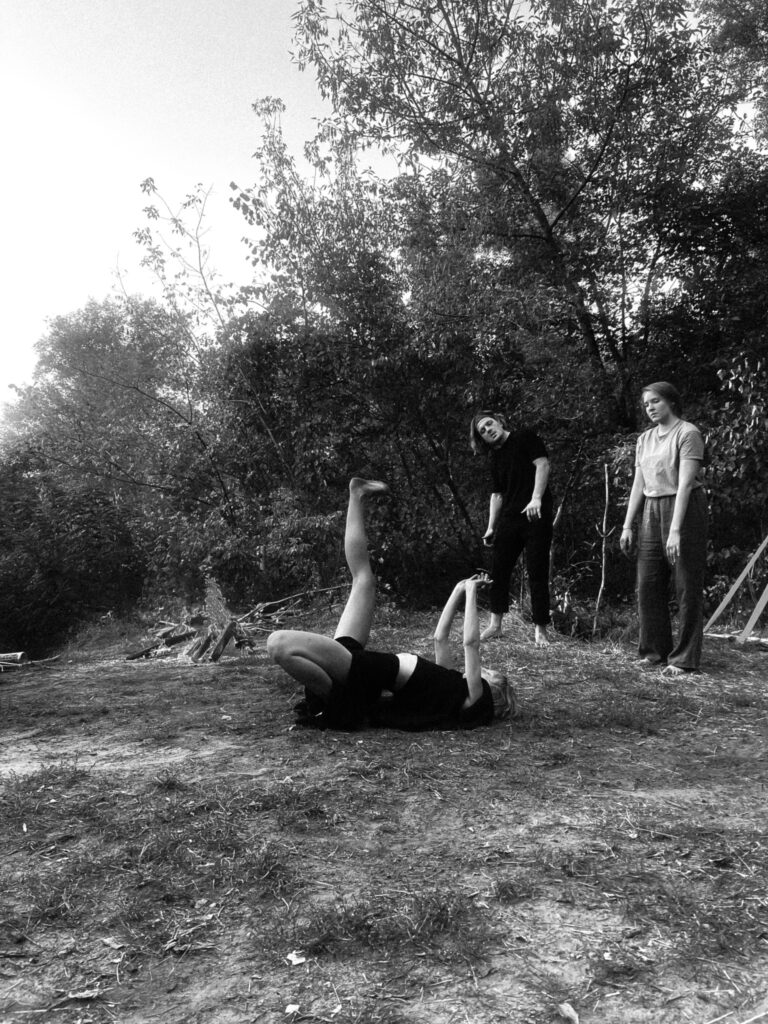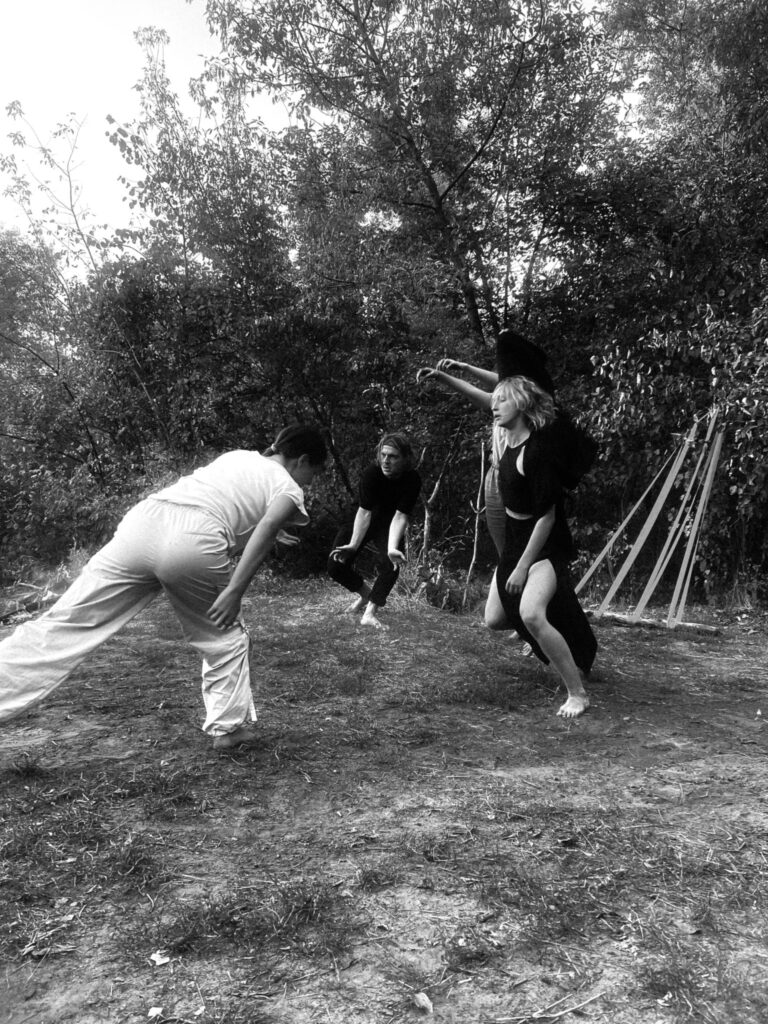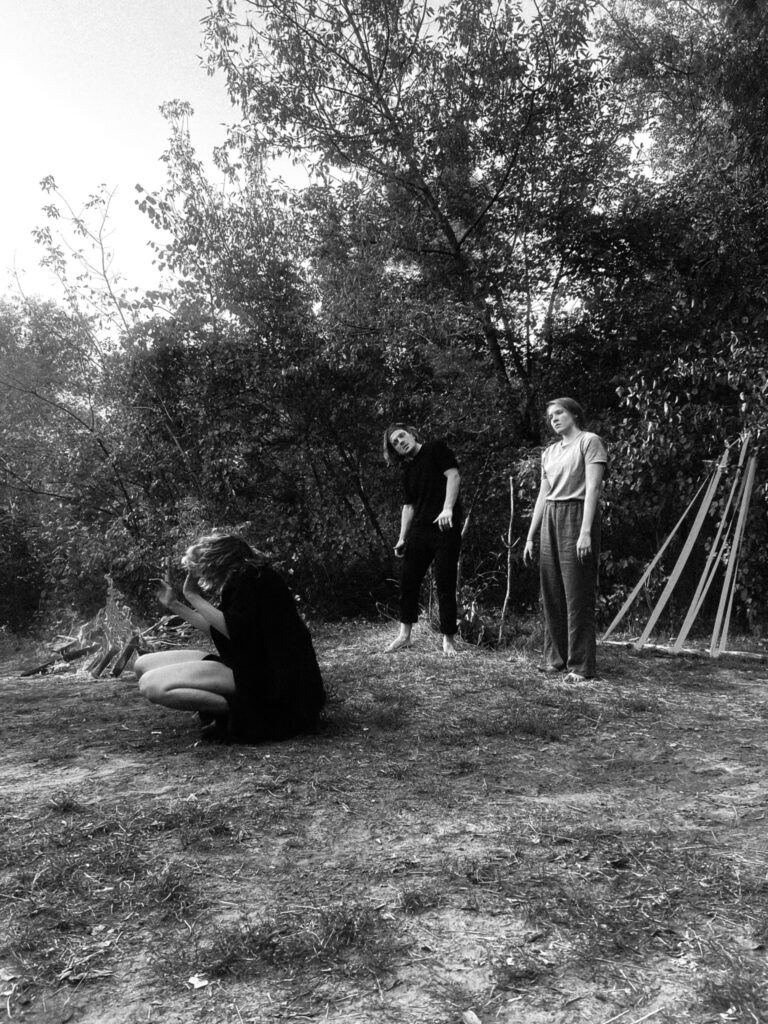4+ Elements
🎯Programme and action: Erasmus+, Mobility of youth workers
🔗Project reference: 2023-3-CZ01-KA153-YOU-000173610
🌏Participants countries: Czechia, Georgia, Greece, Italy, Poland, Portugal, Ukraine
📅Dates: 01-03-2024 – 28-02-2025
Key impacts:
✔️ Increased capacity of youth workers (YWs) to address mental health early.
✔️ Strengthened resilience and burnout prevention for YWs.
✔️ Enhanced creative expression and local community engagement.
Project abstract
Somatics is an umbrella term for movement-based therapies that focus on the mind–body connection. Somatic practices offer significant benefits for youth workers, enabling them to support young people in areas such as:
- Body awareness (the ability to recognise tension in the body and release it through various techniques – a valuable tool for managing stress, panic, and building resilience);
- Grounding (calming the nervous system);
- Pendulation (releasing stored or pent-up energy);
- Titration (gradually addressing past trauma in manageable steps);
- Sequencing (understanding the order in which sensations of tension leave the body);
- Resourcing (identifying and connecting with sensations of safety and calm);
- Expressing (developing authentic movement and emotional expression).
By engaging in somatic practices, youth workers not only develop personal resilience and resistance to burnout, but also gain the tools to introduce these practices to the young people they support.
In response to the identified need for such techniques in daily youth work, a project has been designed with the following framework:
Goal:
To empower youth workers with somatic techniques that can be integrated into their daily practice and used as tools for improvisation.
Objectives:
1) To gather 21 youth workers in an activity.
2) To teach them specific somatic techniques, namely: body-mind centering, grounding, pendulation, titration, sequencing, resourcing.
3) To teach them techniques allowing youngsters to work, improvise and perform through their bodies, namely: contact improvisations, authentic movement and consensual movement.
4) To spread learning on somatic to 200+ audience.
Activities
▪️ Training course on body movement practices inspired by Somatics principles, Contact Improvisation and Performance art (Moravecké Pavlovice, Czech Republic / 04-13-07-2024)
4+ Elements training course was organised in three modular continuities and aimed to explore the boundaries of active learning and connection through movement.
Participants re-connected with themselves through the body and related to others via movement meditations and embodied practices. They touched upon their inner landscapes and emotions, exploring the space between the automatic mechanisms of the ordinary body and the untapped potential of the extraordinary one. The training culminated in performances rooted in togetherness and collective creation.
Module I: Mapping the body
Participants observed and explored the physical mechanisms and expressions of the body itself, raising awareness of bodily patterns and somatic responses.
Module II: Getting to know the “other” body
They built communication through consensual contact and co-movement improvisations, learning to listen, respond, and co-create through the language of the body.
Module III: Body landscapes
The final module led participants into creating performance compositions inspired by the theme “4our & More Elements.” They experimented with body movement, voice, imagery, speech, and objects — bridging the personal and the performative.
Throughout the training, youth workers deepened their knowledge of:
- Somatic practices: body awareness, grounding, pendulation, titration, sequencing, resourcing, expressing;
- Body movement techniques: contact improvisation, authentic movement, and vocal/physical compositions connected to physical theatre and performance.
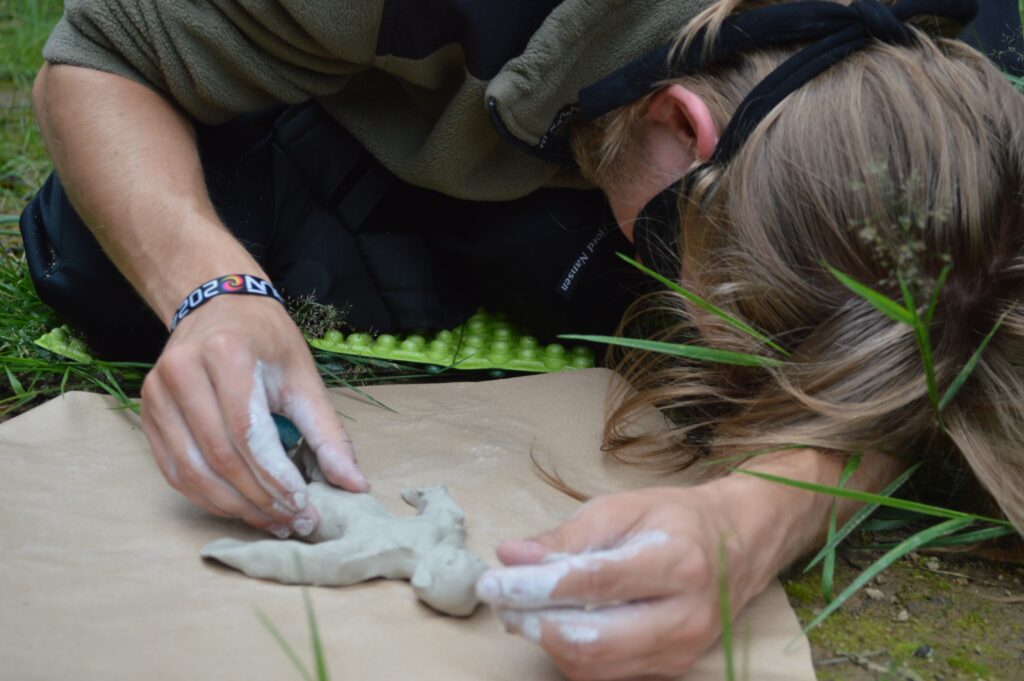
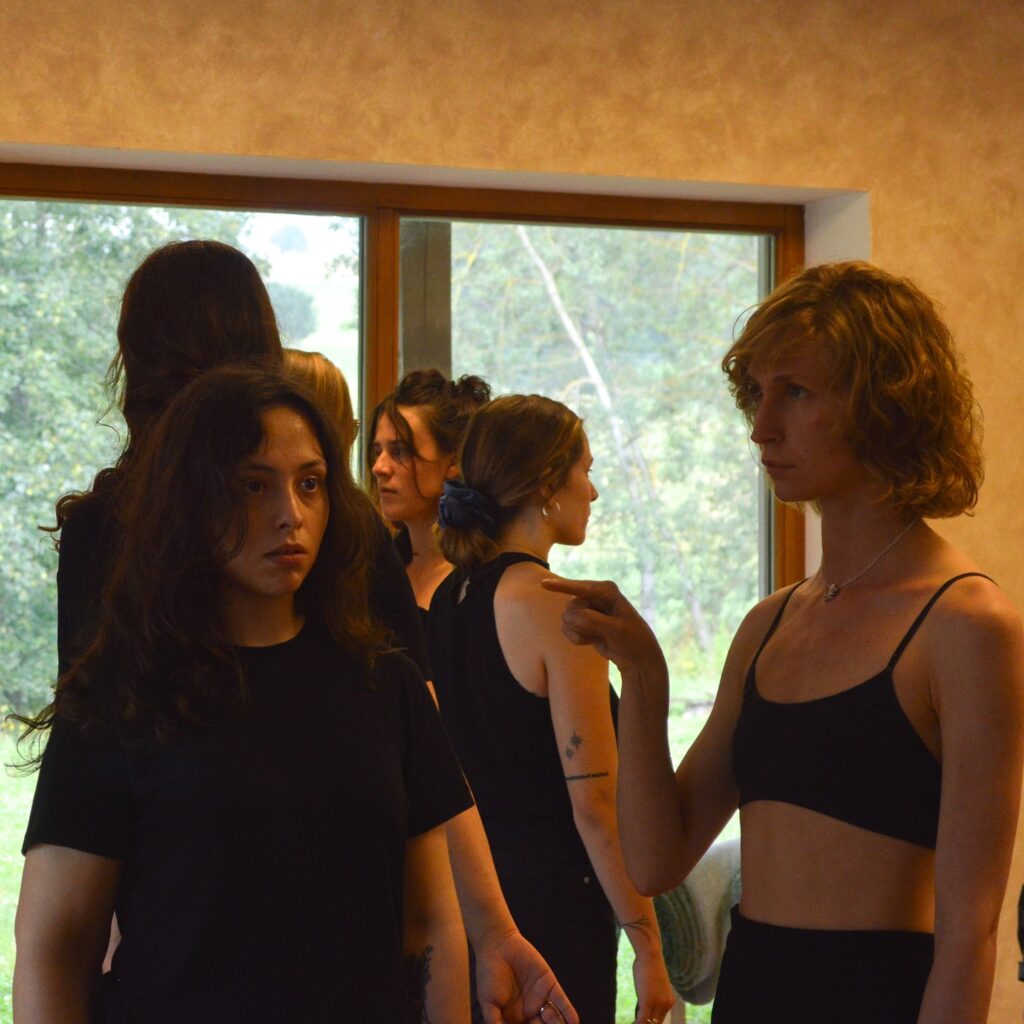
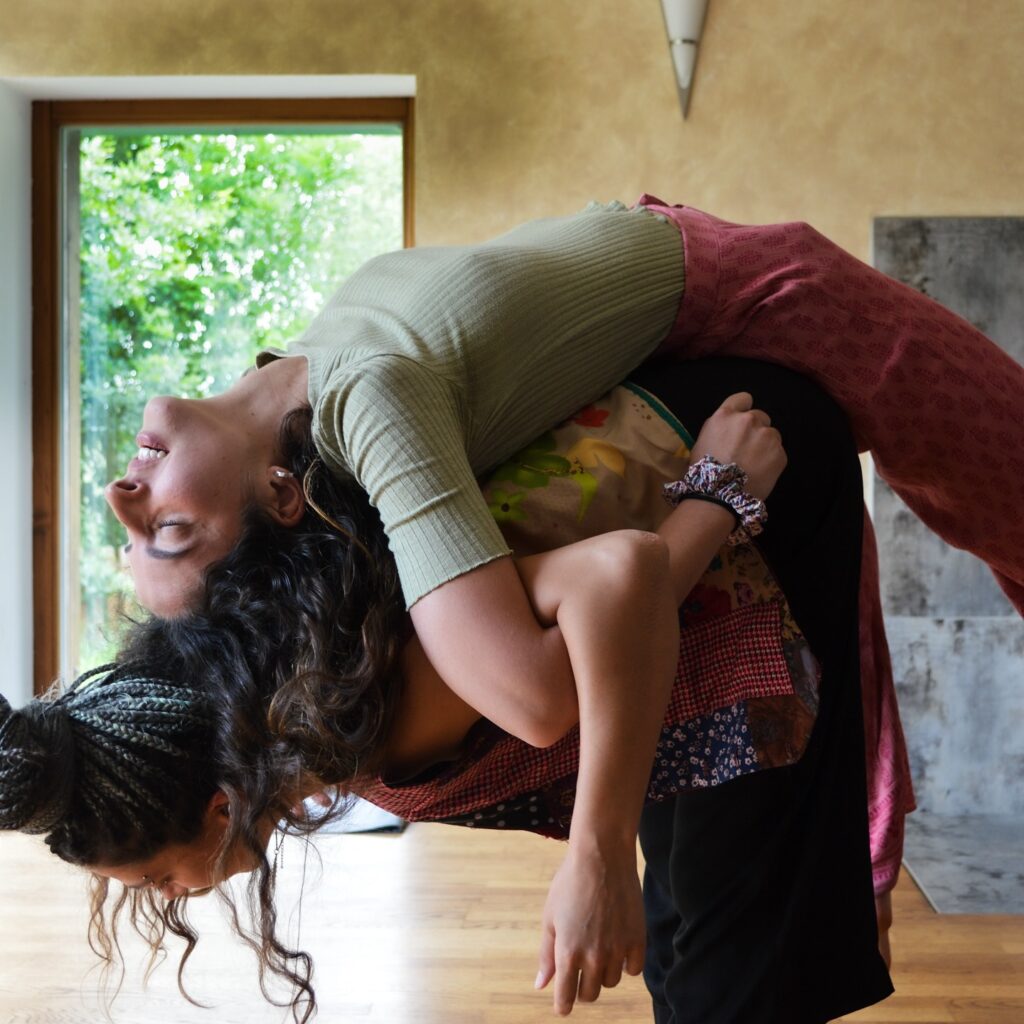
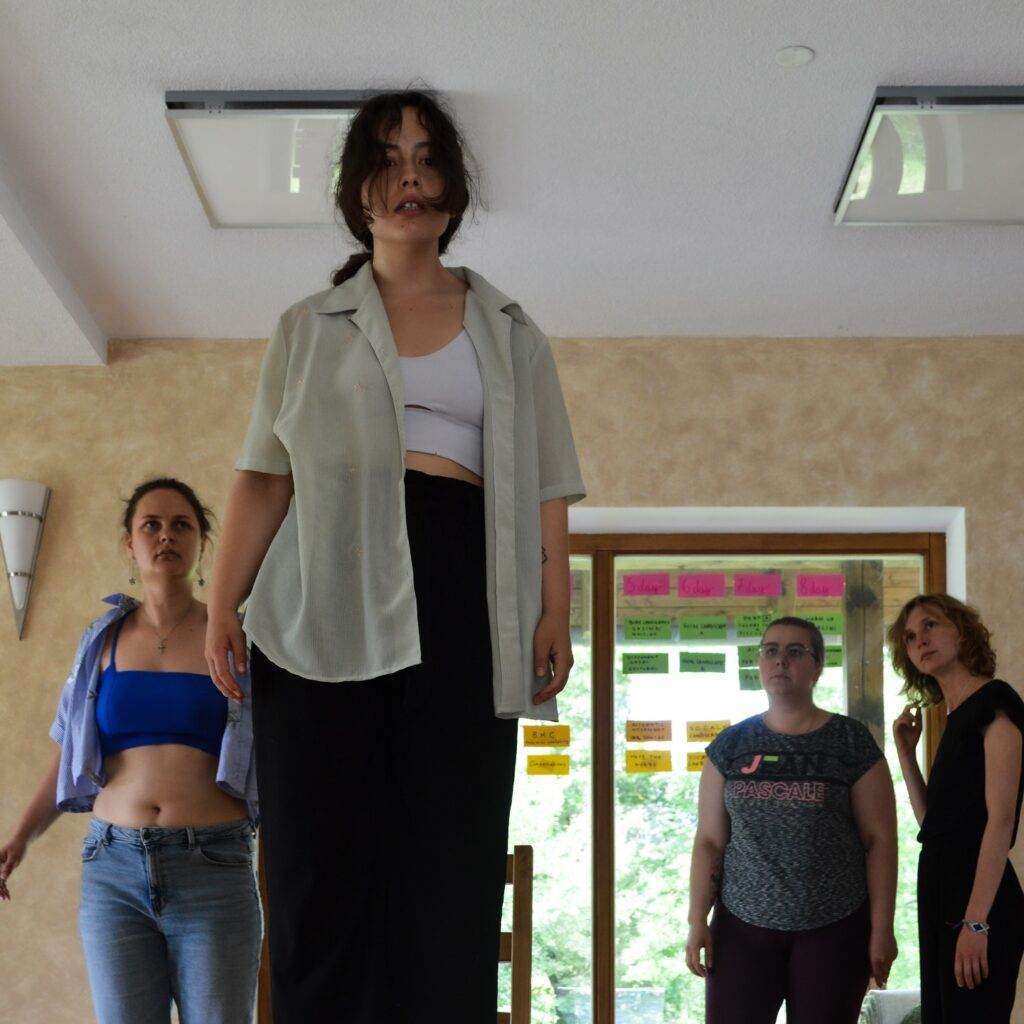
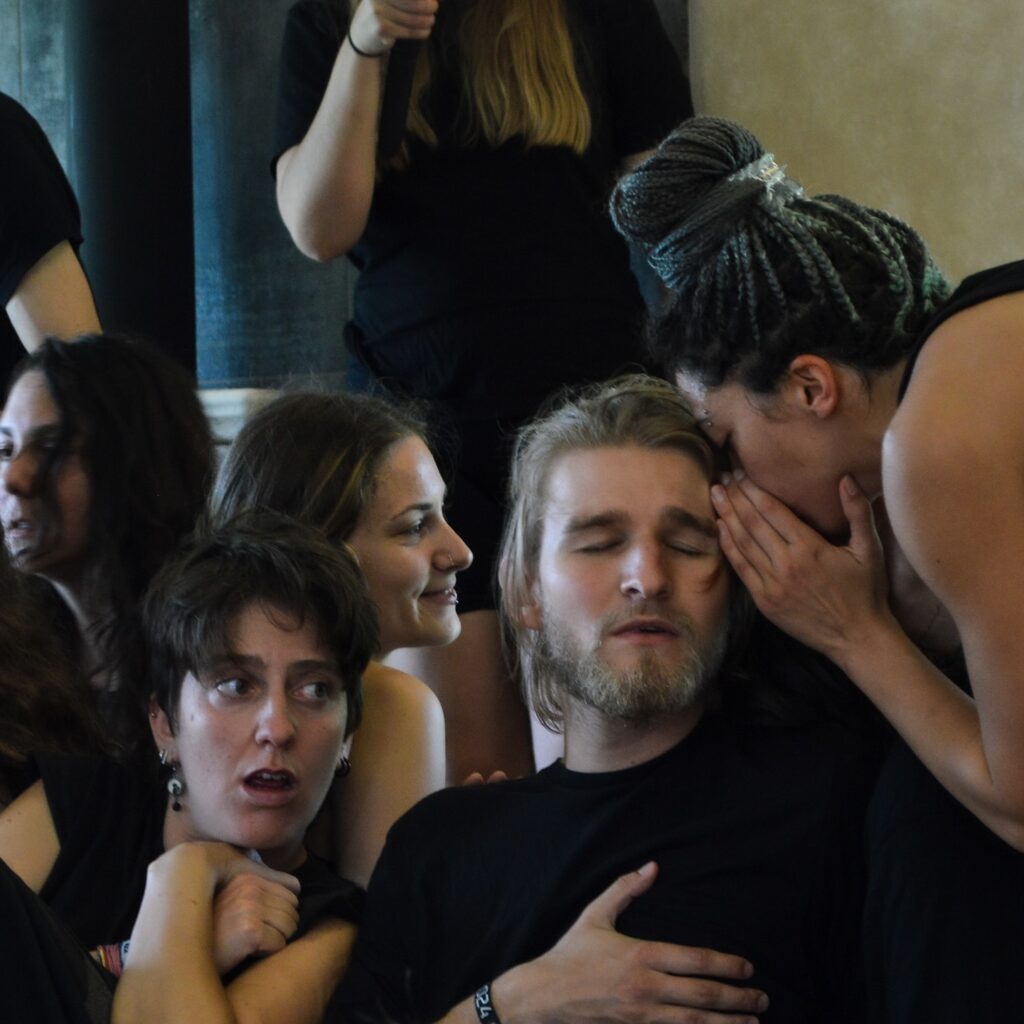
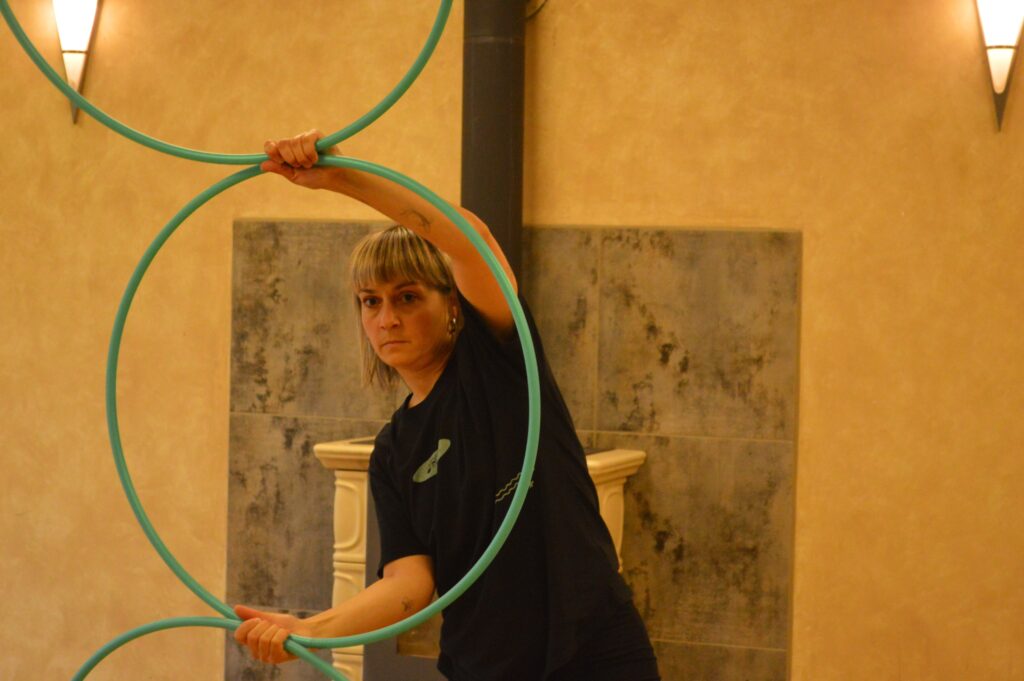
▪️ A workshop on contact improvisation and physical theatre (Kryvyi Rih, Ukraine / 02-08-2024)
Trainer Kateryna Bondar, together with the playback theatre group Echo, demonstrated how emotions can be expressed and experiences reinterpreted through the body using body movement practices.
Participants, youth workers and local young people, immersed themselves in the world of contemporary art through contact improvisation and physical theatre, presented by the Echo playback theatre group.
As an art therapist and trainer, Kateryna Bondar guided participants through techniques of contact improvisation and mindfulness, focusing on body awareness and embodied experience. The importance of implementing participatory forms of theatre that combine art and psychology cannot be overstated, as they contribute to the understanding and transformation of wartime experiences.
The workshop programme included preparation for performance and expressive work, beginning with warm-up and group attunement practices inspired by Jerzy Grotowski, Jacques Lecoq, and Miranda Tufnell. Using elements of phototherapy, participants improvised in pairs, expressing emotions through physical expression, with their states captured in a photo session.
The main part of the workshop focused on becoming aware of isolated movements and developing a holistic movement language as a form of creative improvisation, based on the theory of the four elements.
This event became a significant experience for the local youth, helping them to better understand themselves and their environment, and to discover new means of expression through art and embodiment.
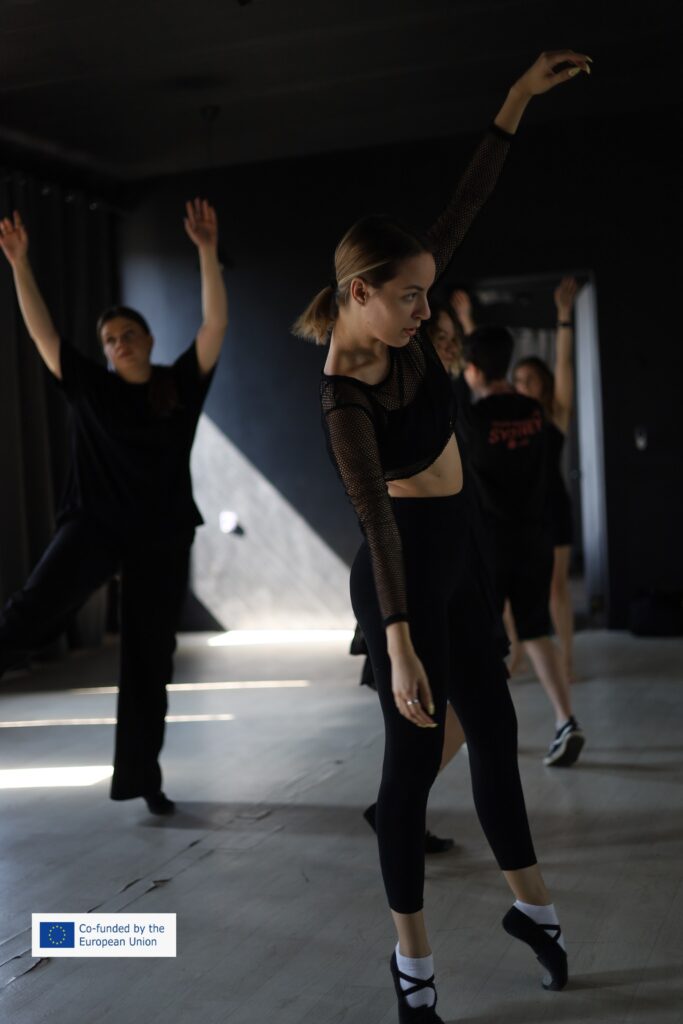
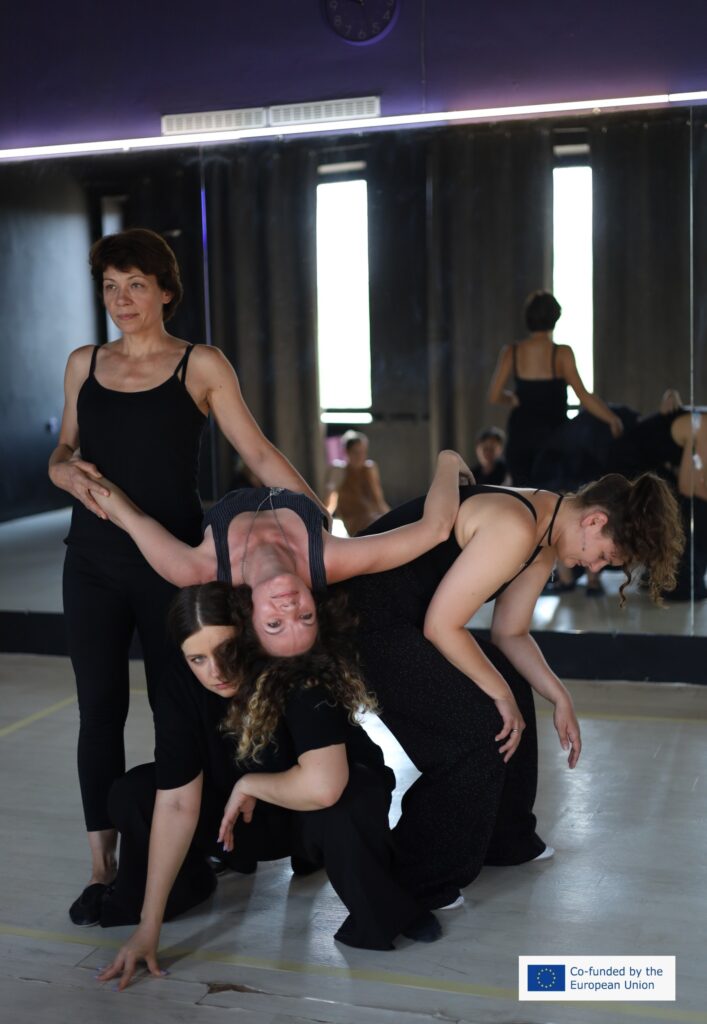
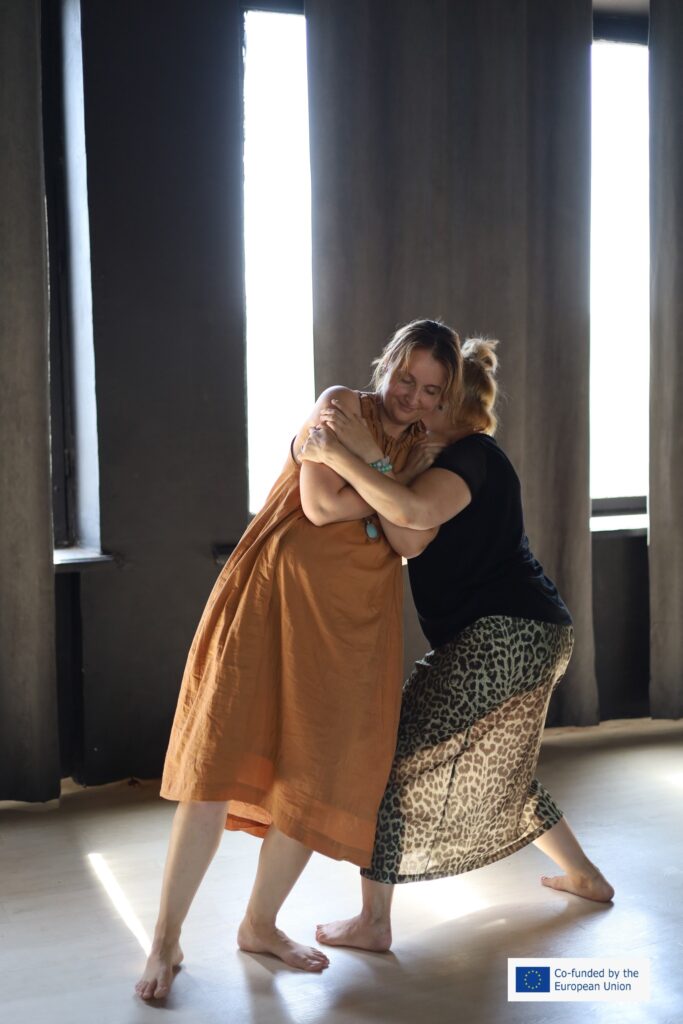
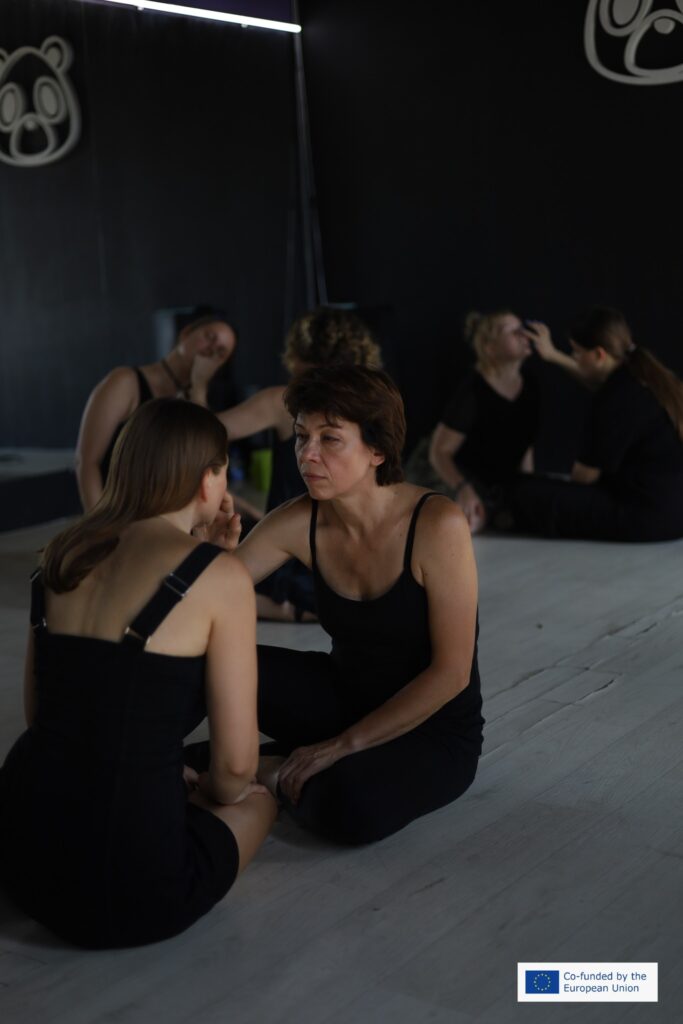
▪️ An art performance about the unique relationship between people and their loved ones during wartime (Kryvyi Rih, Ukraine / 10-08-2024)
An art performance by the playback theatre group Echo, led by Kateryna Bondar, was dedicated to the unique relationships between people and their loved ones during wartime, highlighting these bonds as a resource for recovery and intimacy.
The event invited participants to become aware of their bodies, movements, and interactions with the world. For a month, the performers honed their improvisational skills to sensitively reflect the stories shared by the audience.
A recurring theme emerged during the storytelling: many people spoke about their deep emotional ties with loved ones – relationships that became especially meaningful during times of uncertainty and distress. These shared experiences inspired the improvised performances that unfolded on stage.
The event featured:
- Unexpected stories, transformed into spontaneous theatre pieces by the actors, based on audience memories and emotions.
- Physical theatre and body mindfulness, blending movement, embodiment, and awareness into a powerful expressive tool.
- A photo exhibition, showcasing outcomes of a creative workshop in physical theatre and contact improvisation.
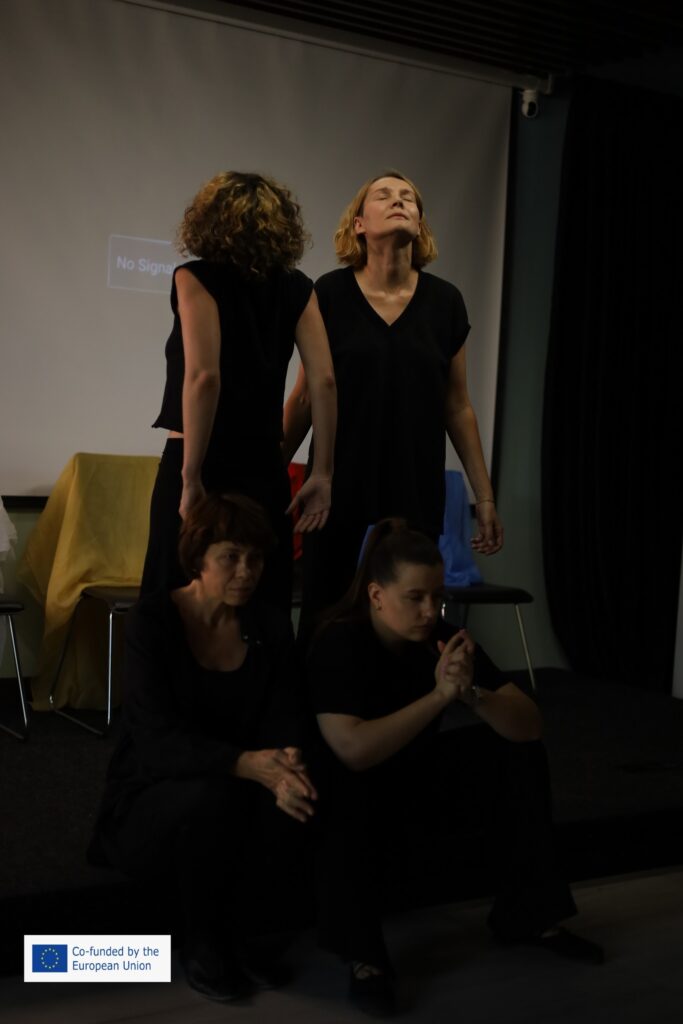

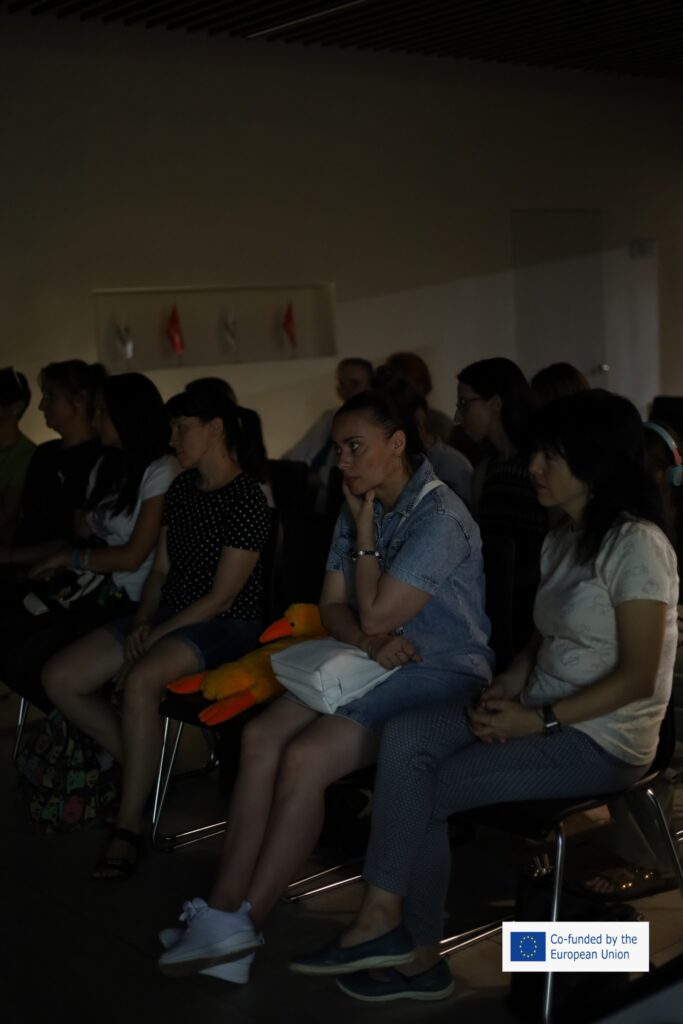
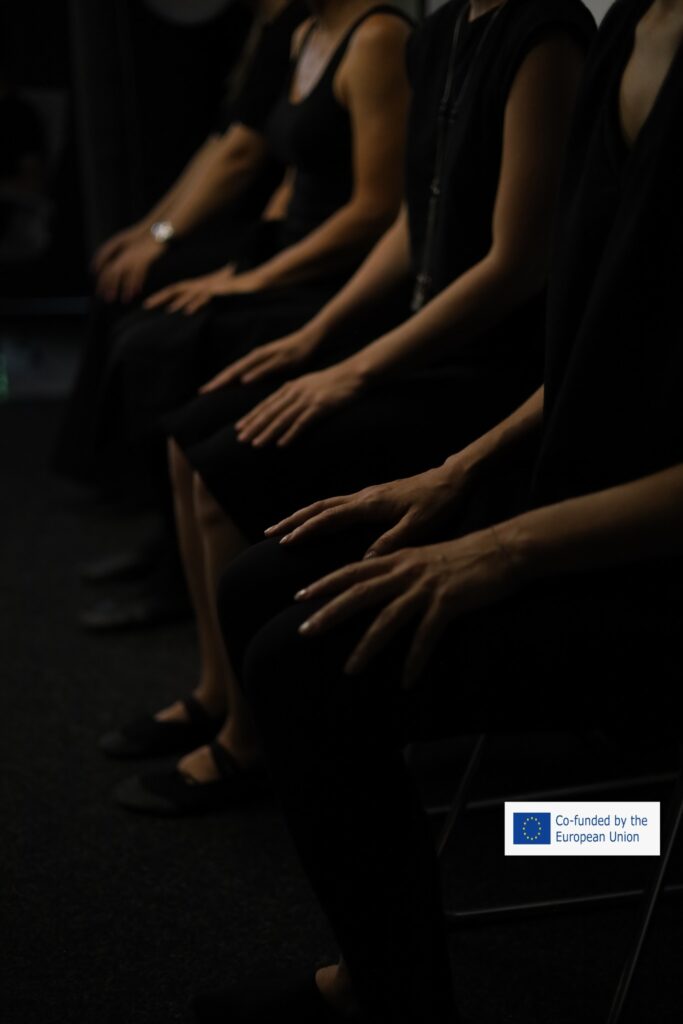
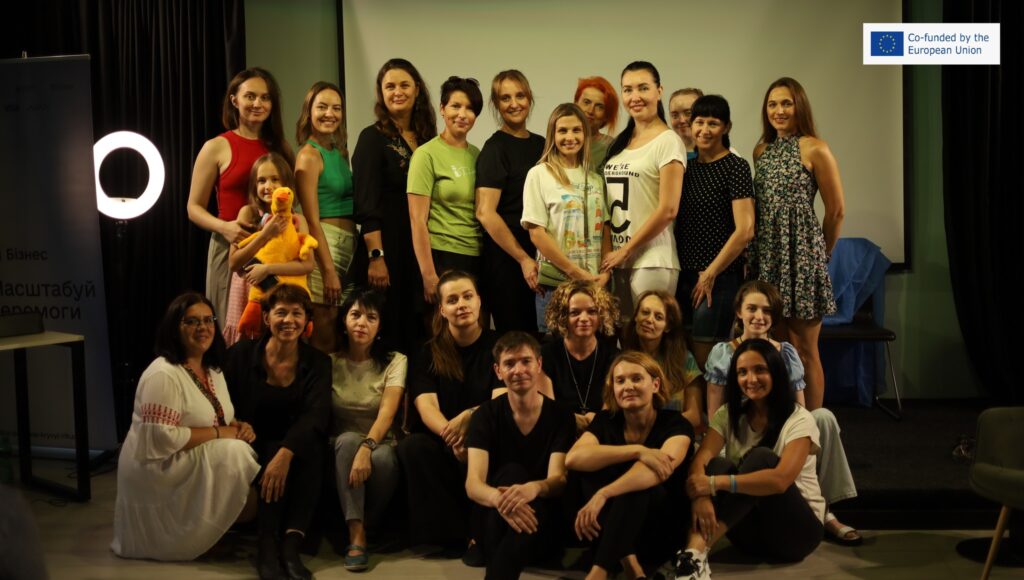
▪️ A series of dance and performance laboratories “Spirit of the Elements” (Kyiv, Ukraine / 29-08-21-09-2024)
Yuliia Lysenko, a contact improvisation dancer, performer, and dance therapist in training, returned from the training in the Czech Republic and went on to engage around 20 people in Kyiv in a series of six dance and performance laboratories. She facilitated a process of self-discovery in a processual format – observing the states, emotions, and characteristics evoked by different elements.
Over three weeks, participants explored the qualities, forms, and interactions of the elements through dance, movement, theatre, and performance practices. They explored how one can connect with the forces of nature through the body and imagination, using their qualities to express inner states and emotions.
They embodied lightning, fire, a mountain stream, or a sea breeze – discovering where these elements live within the body and what they release. Through experiments and group explorations, they investigated both the healing and destructive qualities of the elements, the many forms a single element can take, and the ways different elements interact.
In addition to movement and dance, the laboratories included sounding, painting, writing, performing monologues, gazing into fire, swimming in the lake, dousing with cold water, and deep breathing.
The laboratory took place in the natural surroundings of SKVO space, where all sessions were held outdoors. The laboratories culminated in a collective performance held in a forest, involving seven performers.
